About Sung La valley
Sung La, a charming commune in Dong Van district of Ha Giang Province, has earned its reputation as one of the most scenic highlands in the Dong Van plateau. Situated along Highway 4C, it lies 20km from Dong Van district and 127km from Ha Giang city.
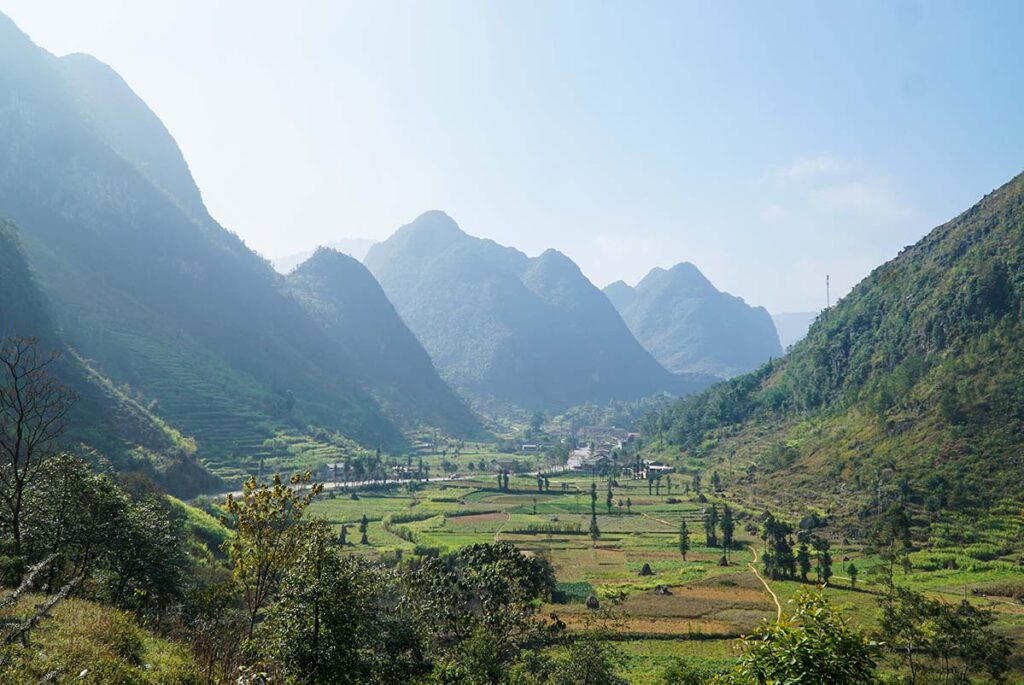
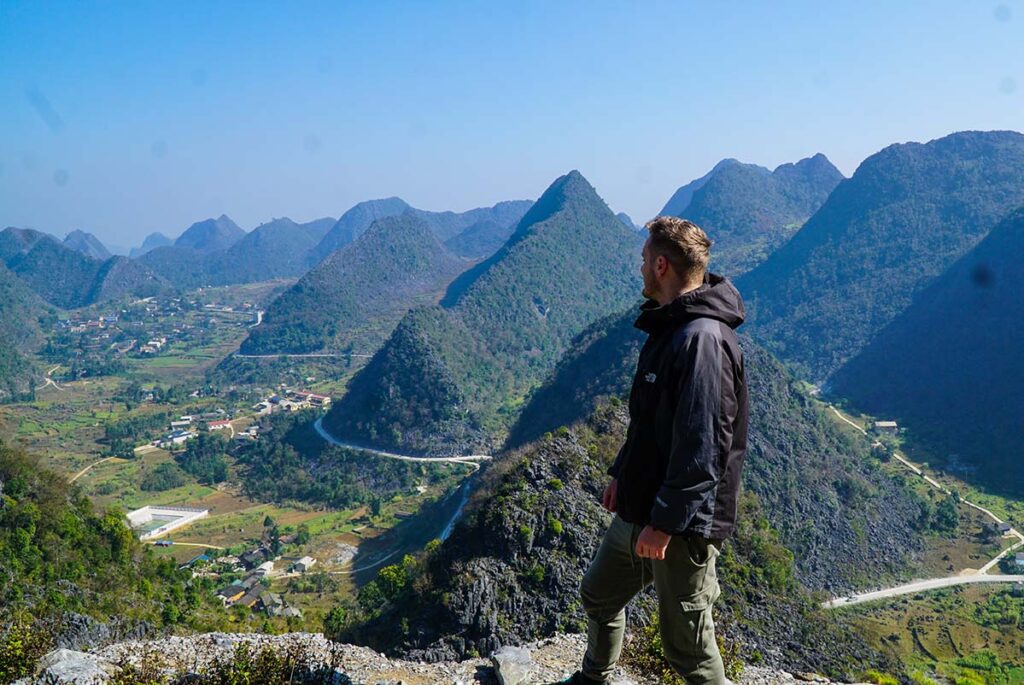
Known for its stunning buckwheat flower valleys, Sung La embodies the meaning of “oasis” for the local ethnic communities. As you ascend the winding Chin Koanh Pass, you enter a lush valley adorned with minority villages and vibrant flower fields. The valley also gained fame among Vietnamese moviegoers because of its portrayal in the acclaimed film “The Story of Pao,” centering on the life of a young H’Mong girl.
Highlights of Sung La Valley
1. Ethnic Minorities
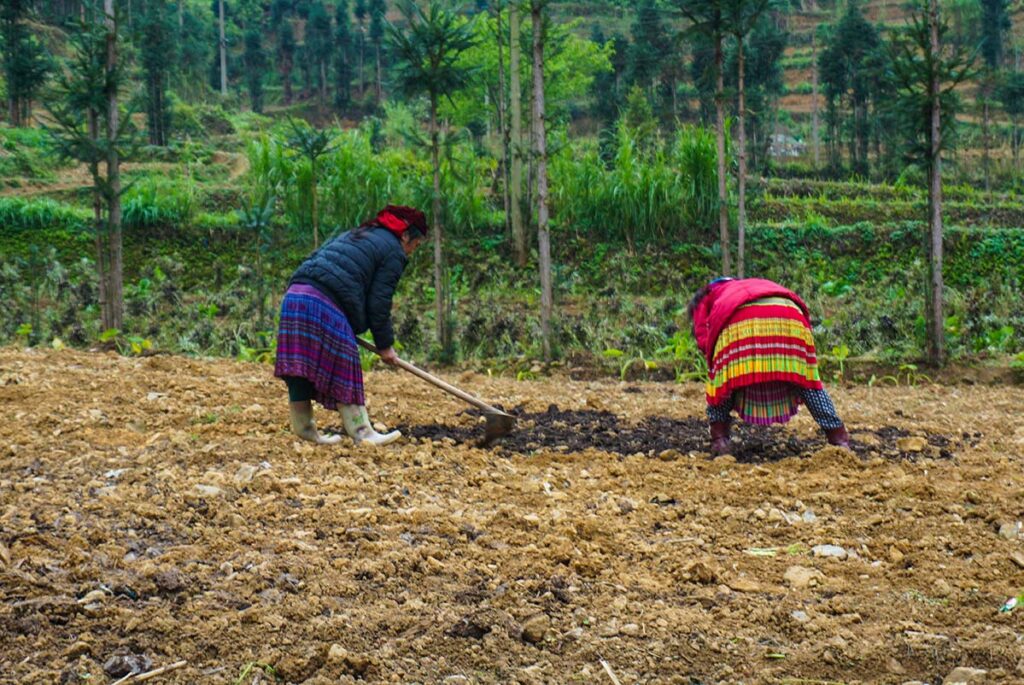
While Sung La Valley’s natural beauty is awe-inspiring, its cultural richness, particularly from its ethnic minorities, adds another layer of fascination. You have the opportunity to immerse yourself in the lifestyles of the Lo Lo, Mong, and Han ethnic groups, learning about their traditional practices, crafts, and cuisines.
2. Buckwheat Flower Fields
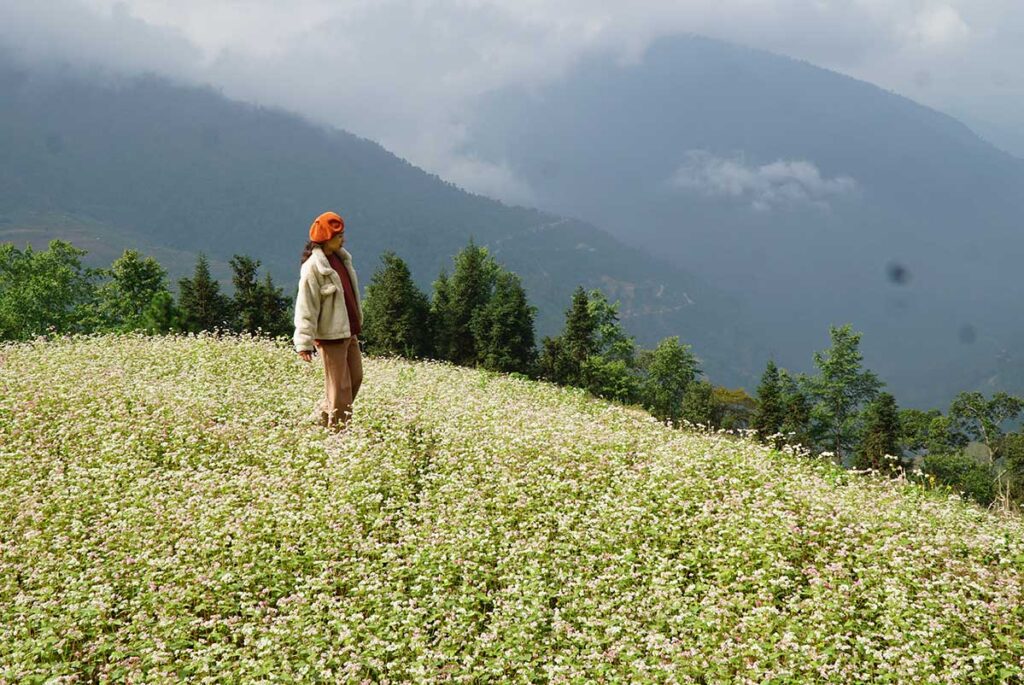
The buckwheat flower serves as an iconic symbol of Ha Giang’s mountains, and Sung La Valley is the perfect locale for flower enthusiasts. The white buckwheat flowers bloom twice a year, from October to November and from April to May. Additionally, the annual Buckwheat Flower Festival offers a host of captivating activities that enhance the experience of visiting this floral paradise.
3. Chin Khoanh Ramp
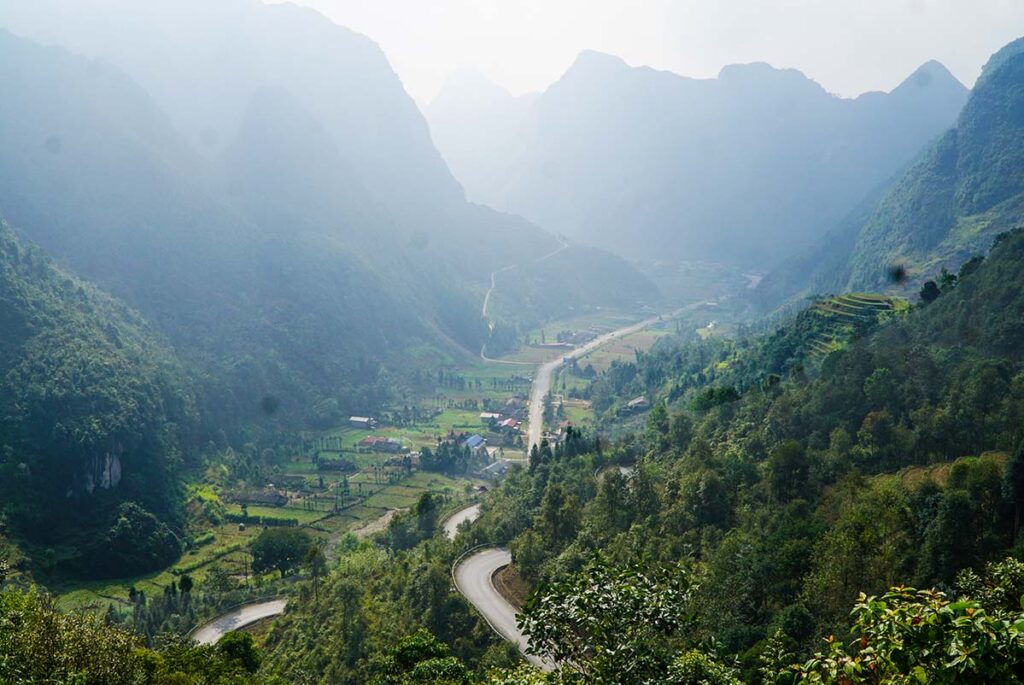
Before reaching Sung La Valley, visitors navigate through the Chin Khoanh Pass, also referred to as the Nine Ramps for its nine-level turns. The well-maintained road provides an exhilarating drive, culminating in panoramic vistas of the valley below. A local woman has also cultivated buckwheat fields on a section of the pass, offering excellent photo opportunities for a nominal fee.
4. Pao’s House
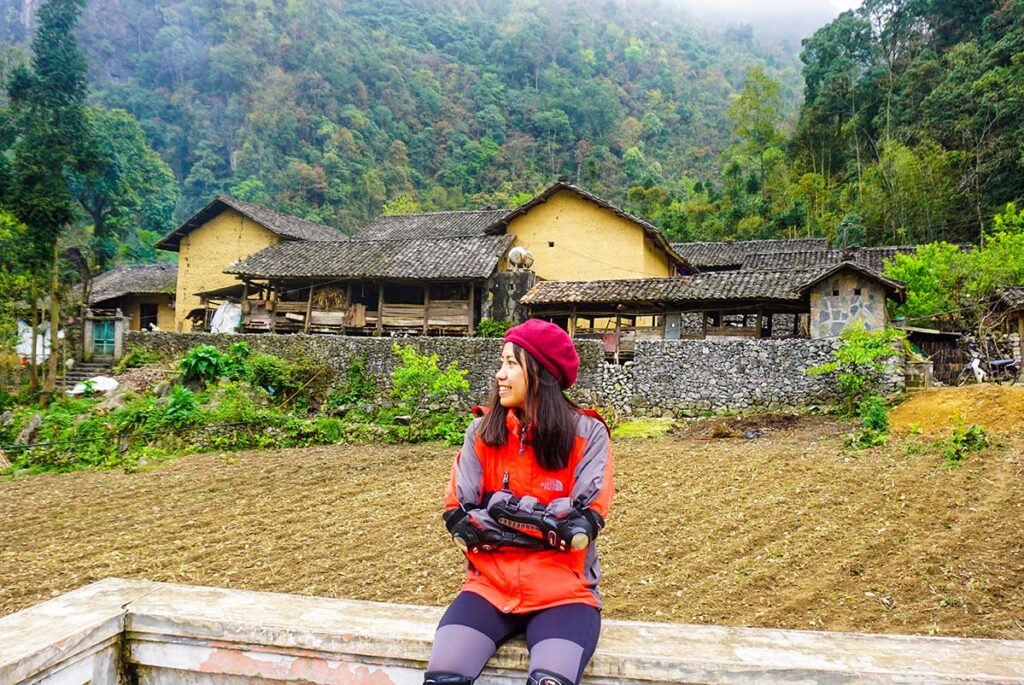
Following the success of the movie “The Story of Pao,” Pao’s House has turned into a must-visit spot. Built over a century ago, the house has retained its rustic charm, with its unique U-shaped layout, stone fences, and vintage yin-yang tiles. The property also boasts plum and peach trees that burst into colorful blooms at the start of each year.
5. Lung Cam Village
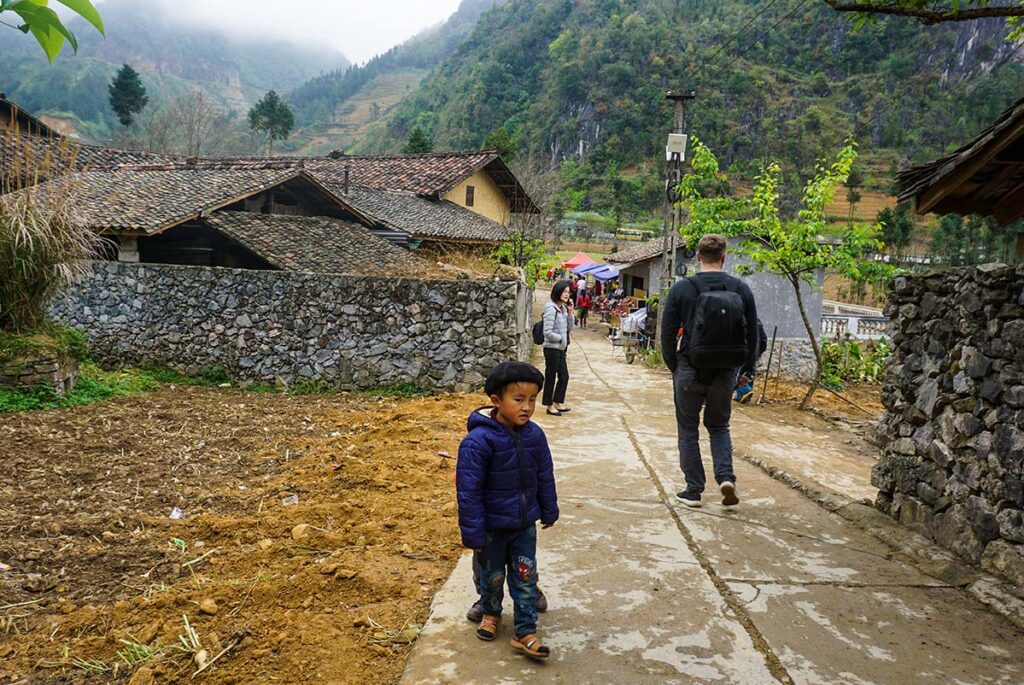
Surrounding Pao’s House is the quaint Lung Cam Village, home to over 60 households. The unique architecture of the local H’Mong houses captures visitors’ attention, featuring aged walls and moss-covered tiled roofs. With its century-long history, the village now serves as a cultural tourism hub, drawing countless visitors eager to experience local life.
Best time to visit
Buckwheat Flower Season
The most iconic time to visit Sung La Valley is during the buckwheat flower seasons. These occur twice a year: the main season runs from October to November, while an off-season happens from April to May. During these periods, the valley transforms into a sea of white and pink blossoms, providing the perfect backdrop for photography and peaceful walks.
Other Flower Seasons
Aside from buckwheat, Sung La Valley is home to various other seasonal blooms like rhododendrons and wild sunflowers. These flowers typically make their appearance from June to August, adding a different but equally mesmerizing color palette to the landscape.
Spring
Spring, from February to April, is another excellent time to visit. This season offers comfortable temperatures and is also a culturally rich period to explore the valley. You can witness local festivals celebrating the Lunar New Year, which usually falls in late January or early February. These festivals offer insights into the traditions and communal activities of the ethnic minorities living in the area.
How to get there
Location of the Valley
The valley is situated along Highway 4C, 20km from Dong Van district and 127km from Ha Giang city.
Visiting part of the Ha Giang Loop
The valley is a significant point of interest along the popular Ha Giang Loop, which commences in Ha Giang City.
Getting from Ha Giang to Sung La Valley
Motorbikes and cars are the primary modes of transport, with the distance taking roughly 2 to 3 hours to cover.
Accommodations in Sung La Valley
Though accommodations are limited, mainly attracting Vietnamese tourists, several homestays provide comfortable stays. Dining options are also limited, with most homestays offering family-style dinners, providing a unique and intimate experience.
Tips for visiting Sung La Valley
- Respect Local Culture: Sung La Valley is home to various ethnic minority communities like the Lo Lo, Mong, and Han. When visiting their villages, it’s essential to respect their customs and traditions. Always ask for permission before taking photos of people or their property.
- What to Bring: Pack essentials like water, sunscreen, and insect repellent, especially if you plan to explore on foot. If visiting during the colder months, make sure to bring warm clothing as temperatures can drop significantly at night.
- Choose the Right Season: As mentioned in the “Best Time to Visit” section, different seasons offer unique experiences. Choose the time that best matches your interests, whether it’s the buckwheat flower season or the local New Year celebrations.
- Local Guides: Consider hiring a local guide to enrich your experience. They can provide invaluable insights into the history, culture, and geography of the area, making your trip more educational and meaningful.
- Accommodation and Food: The valley is mainly popular among Vietnamese tourists, and the accommodations are few but welcoming. Homestays are the primary option, and many offer family dinners. Book your stay in advance during peak seasons like the buckwheat flower bloom.
- Cash and Connectivity: ATMs and internet connectivity can be sparse in this remote area. Make sure to carry enough cash for your entire stay and don’t rely solely on digital maps or communication.
- Dress Appropriately: If you’re planning to visit religious or culturally significant sites, dress modestly to show respect. Lightweight, long-sleeved clothing is also practical for protecting yourself from the sun and insects.

